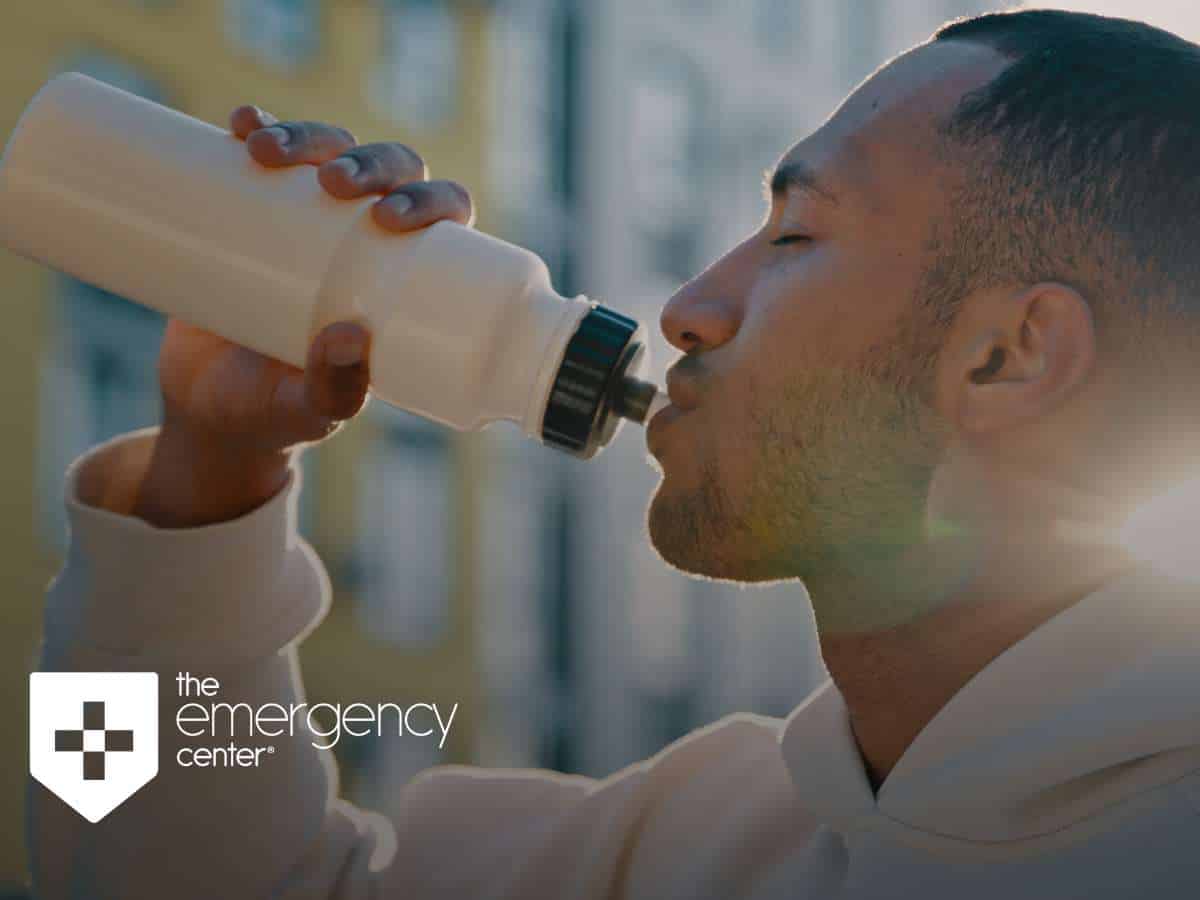Dehydration occurs when the body loses more fluids than it takes in, leading to an insufficient amount of water to carry out its normal functions. While mild dehydration can often be resolved with increased fluid intake, severe dehydration can be life-threatening and requires immediate medical attention. Recognizing the signs of dehydration and knowing when to visit the emergency room (ER) can make a significant difference in your health and well-being. In this blog, we’ll explore the symptoms of dehydration and provide guidance on when it’s time to seek professional medical help.

Water is essential for the body’s proper functioning. It helps regulate body temperature, aids digestion, transports nutrients, and removes waste products. When the body loses more fluids than it takes in, it disrupts these vital processes, leading to a range of symptoms and complications.
Dehydration can manifest in various ways, and its symptoms can range from mild to severe. Here are some common signs to look out for:
While mild dehydration can often be managed at home by drinking fluids, certain situations warrant a trip to the emergency room:
If you experience symptoms such as extreme thirst, very dark urine, confusion, rapid heartbeat, rapid breathing, or fainting, seek immediate medical attention.
If you’re vomiting and unable to keep fluids down, you may become dehydrated quickly. In such cases, a visit to the ER is essential to address the underlying cause.
Dehydration can be especially dangerous for young children and infants. If a child has a dry diaper for several hours, cries without tears has a dry mouth, or appears lethargic, it’s important to seek medical help promptly.
Individuals with chronic illnesses, such as diabetes, kidney disease, or heart conditions, are at a higher risk of dehydration. If you have one of these conditions and suspect dehydration, don’t hesitate to visit the ER.
Dehydration is a serious condition that should not be taken lightly. Recognizing the signs of dehydration and knowing when to seek medical attention can be a lifesaver. In most cases, mild dehydration can be prevented and treated by drinking enough fluids. However, if you or someone you know experiences severe dehydration symptoms, it’s crucial to visit the emergency room promptly. Dehydration can have serious consequences, but with timely intervention, its effects can be reversed, and potential complications can be avoided. Stay hydrated and listen to your body’s signals to ensure your well-being.
Enjoy life. We’ll be here for the bumps along the way. ™
The Emergency Center
San Antonio
11320 Alamo Ranch Pkwy
San Antonio, TX 78253
Phone: 210-485-3644
Conroe
4019 I-45 N,
Conroe, Texas 77304
Phone: 936-247-9457
Is your nausea more than just an upset stomach? Learn about the causes of nausea…
Experiencing numbness or tingling? Discover the causes and know when to seek emergency care for…
Experiencing abdominal pain? Learn what it could mean by location and when to visit the…
Is your skin redness a sign of something serious? Learn about different types of skin…
Why are ER wait times so long? An emergency room physician explains key delays and…
Are you aware of the dangers of carbon monoxide? Learn prevention tips, symptoms, and how…